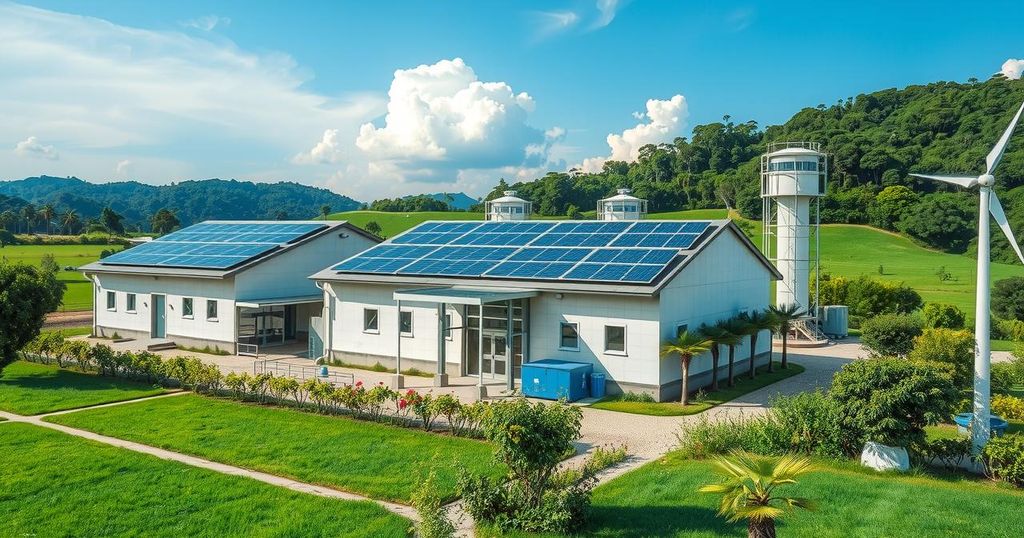Chinese Companies Grab Stake in Nigeria’s Lithium and EV Future

- Chinese companies invest heavily in Nigeria’s lithium supply chain.
- Two major lithium processing facilities are under construction.
- Nigeria offers incentives for local processing of lithium.
- President Tinubu’s administration promotes local value-added policies.
- Jupiter Lithium competes with Chinese firms in Kaduna.
- Solar-powered charging stations are being established.
- BYD joins emerging local EV market in Nigeria.
Chinese Investment in Nigeria’s Lithium Market
Chinese companies are positioning themselves in Nigeria’s burgeoning clean energy market, focusing on lithium extraction essential for electric vehicle (EV) batteries. This strategy aims to secure a significant foothold in what is projected to be Africa’s dominant EV market. Two major lithium processing facilities are underway in Nigeria, both heavily backed by Chinese investments, reflecting a trend where Chinese firms are becoming increasingly influential in the local economy.
Local Processing Drives Investment
The first plant is a massive $600 million facility under construction at the border between Kaduna and Niger states, developed by Jiuling Lithium Mining Company. This facility is expected to begin operations soon. Meanwhile, a second facility, costing $200 million, is being established by Canmax Technologies in Nasarawa state, on the outskirts of the capital, Abuja. Both plants illustrate the Chinese firms’ commitment, as they are financing over 80% of these ventures, indicating the scale of their involvement.
Government Policies Favor Lithium Development
As Nigeria opens its doors to foreign investments in lithium processing, the government has also enacted policies to keep some added value in the country. President Bola Tinubu’s administration has prohibited the export of raw lithium without prior local processing, therefore boosting domestic production capabilities. This is seen as a turning point for mining in Nigeria, as companies are now required to present local refining plans to get the green light for their projects, encouraging more strategically sound investments in the sector.
Promising Discoveries and Government Incentives
Discoveries of high-grade lithium deposits within Nigeria signal potential for increased production, even though the country does not yet rank among top lithium producers globally. Geophysical surveys highlight promising lithium belts, including finds that boast as much as 13% lithium oxide. To sweeten the deal for investors, incentives include a five-year tax holiday and various exemptions. More Chinese plants are expected to join the fray, with around $1.3 billion currently invested in the lithium sector, according to local authorities.
Jupiter Lithium Competes with Chinese Firms
Jupiter Lithium, a UK-based company, is a notable contender against the Chinese firms, having discovered substantial lithium deposits in Kaduna and building a facility in collaboration with US firm ReElement Technologies. Its production aims to meet high demand in Europe and America, all while the local government pushes for assembly plants for EVs that will utilize these local lithium resources.
Emerging Local EV Manufacturers
China’s BYD has now entered the Nigerian electric vehicle market, establishing a local distribution partnership to expand its footprint amid emerging competition from local players like Electric Motor Vehicle Company (EMVC) and Saglev. These indigenous companies focus on producing electric vehicles ranging from buses to SUVs. As unreliable grid power remains an issue, many EV users are turning towards solar energy solutions to sustain their vehicles.
Government Initiatives Encourage EV Adoption
In an effort to further promote the adoption of electric vehicles, the Nigerian government has begun implementing solar-powered charging stations in key locations. This initiative showcases Nigeria’s commitment to reducing fossil fuel dependency. Plans for additional infrastructure to support this transition are also being discussed between Chinese and Nigerian officials, highlighting the continued partnership in the green economy.
Future Prospects and Strategic Relationships
As always, moving forward, there’s a pressing need for Nigeria to establish local production lines for electric vehicles that could benefit from the locally sourced lithium. During discussions with Chinese leaders, the expansion of bilateral relations was emphasized, especially concerning mining and green technology investments. Nigerian officials are keen to capitalize on these relationships to foster sustainable development yet remain cautious about potential dependency on foreign investment.
In summary, Chinese companies are establishing a formidable presence in Nigeria’s lithium sector, with significant investments in processing facilities and support from government policies aimed at local value addition. While competition exists, particularly from companies like Jupiter Lithium, the increasing collaboration between China and Nigeria signals a focused approach towards building a sustainable electric vehicle market. The journey ahead is promising, as these developments could hold the key to transforming Nigeria’s energy landscape and economic growth.




